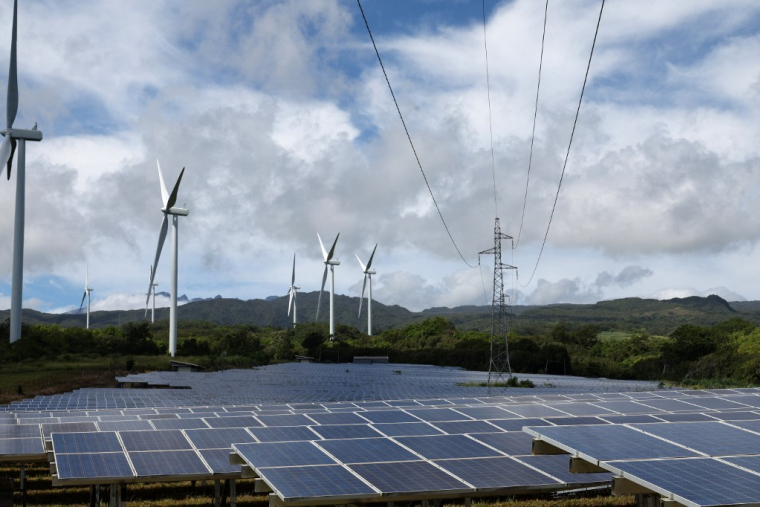The deputies pronounced Tuesday June 24 on a bill which integrates a moratorium on solar and wind, with the backdrop of recurring and various criticisms on their cost or their reliability. Are these reproaches founded?

( AFP / RICHARD BOUHET )
Figure
During the examination of the text on the energy programming of France, the national rally supported an LR amendment suspending any new investment in photovoltaic and wind energies.
This amendment estimates an increased development of renewable energies (ENR) at 300 billion euros by 2035-2040, also a figure brandished by the RN, but calculated in a “fallacious” manner, according to the France renewable union.
In a Facebook post of March 24, the deputy RN Jean-Philippe Tanguy details: “It will cost more than 100 billion euros in subsidies for wind and solar, to add to the 200 billion already planned by RTE and Enedis to connect all this absurd policy”.
The State guarantees an electricity purchase price in order to ensure the profitability of projects, which represents public support of 100 billion euros but it is “a maximalist estimate” spread “until 2060”, explained Prime Minister François Bayrou in early May.
When the prices of electricity on the wholesale markets are greater than this purchase price, producers pay the difference to the State. The ENRs thus “rendered” 13.7 billion euros in 2023, according to the Energy Regulatory Commission (CRE).
What costs for the electricity network?
RTE and ENEDIS network managers have initiated investment plans, respectively 100 and 96 billion euros by 2040, to renew their lines, adapt them to climatic hazards and support the decarbonization of the economy.
RTE will devote 53 billion to the connections of future wind farms at sea and large solar power plants, but also new nuclear reactors, new factories and data centers.
For Enedis,
Of the 96 billion euros planned, only 10 are dedicated to enr
.
Why do you need renewables?
France still depends at 60% of fossil fuels – almost all imported – for its energy needs. This share must be reduced to 42% in 2030 to respect its objectives to combat climate change.
The challenge: replacing fossil fuels, which causes global warming, in cars, industry or heating.
To achieve this, the energy roadmap is betting on a strong growth in nuclear electricity, but also wind and solar, while the first of six new programmed nuclear reactors is not expected before 2038.
In 2024, imports of gas and oil cost 64 billion euros to France. The RN’s position amounts to “maintaining” France in “dependence on fossil fuels”, notably coming from Russia, accused the Minister of Energy Marc Ferracci.
The intermittent in question
Another reproach, their intermittent character: without wind or sun, they cannot produce electricity. Conversely, they can generate surplus when demand is too low.
And
“excessive” development of renewables would run “the risk of blackout”
Like the one experienced by Spain at the end of April, according to the amendment. But this track was not put forward at this stage by the Spanish government or by a panel of European experts.
Intermittentness can cause negative prices on wholesale markets: producers must then pay to inject their electricity into the network. To limit the cost, wind farms at sea will now have to stop during negative price periods.
The abundance of renewables can also lower invoices if you move consumption to production peaks thanks to the incentive of off -peak/full hours, as planned from this fall.
Finally, batteries storage, still embryonic, can absorb production in the event of surplus.
What acceptability?
According to an IFOP survey carried out in April 2025 on a sample of 12,029 people for Engie, itself producer of renewable energy, solar is perceived favorably by 89% of respondents, while 78% have a good image of wind. And 56% of French people claim that electricity production must be based on a nuclear and renewable “mix”.
A sector of 160,000 jobs
According to the Syndicate of Renewable Energies (SER), this moratorium threatens to scratch “a feather line the 160,000 people” working in renewables in France.
According to the chambers of agriculture, agri-voltaism (solar panels on farms) provides an income of 800 million euros per year for the agricultural world.

